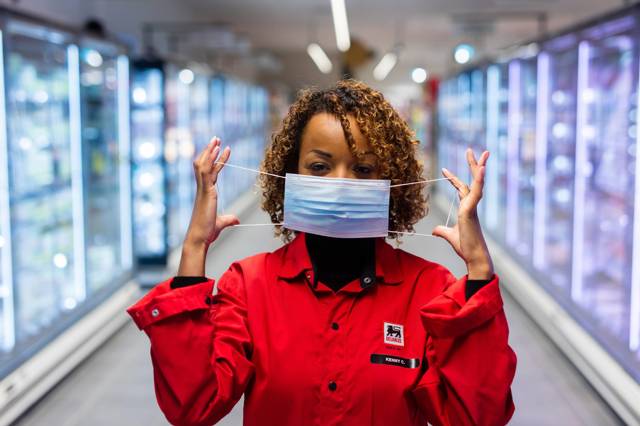
Impact and our response
COVID-19: Impact and our response
COVID-19 continued to have a significant impact on our lives in 2021, as infection rates fluctuated and societies in our brands’ markets opened and then closed again. Our approach to the pandemic was, as always, driven by our commitment to maintain a stable food supply chain, provide a safe shopping environment for customers and associates and support our communities.
Despite the challenges we faced, our brands were able to provide customers with healthy and affordable food options, operating in compliance with rapidly changing local regulations and managing global supply chain disruptions.
Our strategy kept us well positioned to address changing circumstances, and our associates continued to do a fantastic job in keeping local stores open, deliveries running and shelves well stocked, to help us fulfill our pivotal role in society.
Please note that in this section and the rest of the report, we also refer to the COVID-19 pandemic as “COVID-19” or “the pandemic.”
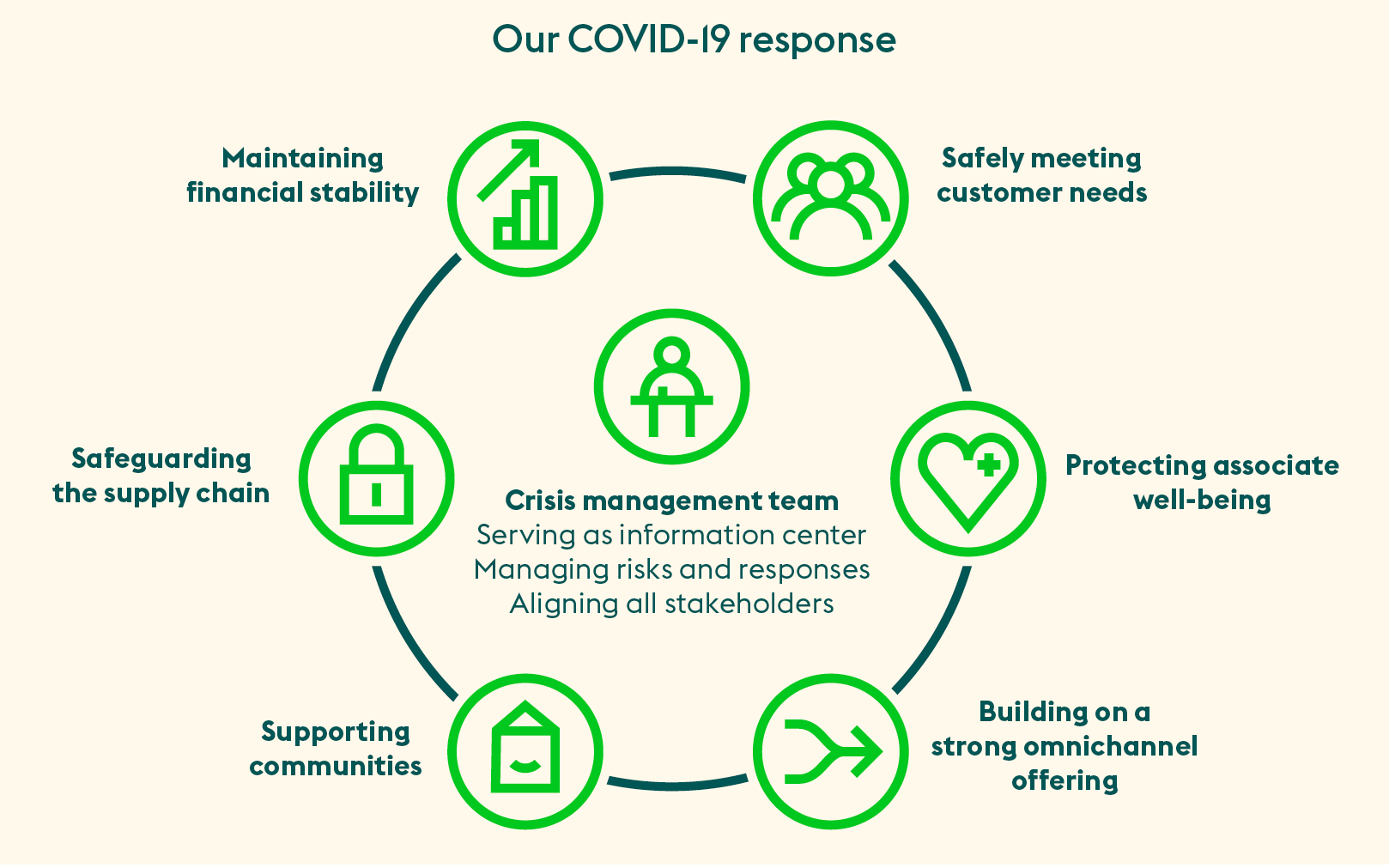



Overall crisis response
Over the past year, our global, regional and local crisis management teams continued to monitor the development of the pandemic, oversee activities, engage with relevant functions within the company, connect with local governments, and advise senior management on policy questions, risks and actions to be taken to mitigate its impact on our overall operations. We evaluated and updated our mitigation activities on a bi-weekly basis.
Since the start, our pandemic response has been based on six main principles: safely meeting customer needs, protecting associate well-being; supporting communities; safeguarding supply chains; building on a strong omnichannel offering; and maintaining financial stability (see infographic to the right). The actions we took across the brands and businesses were aimed at living up to these principles. In 2021, we invested an additional €364 million into safety and preventative measures (including sanitation and protective equipment) in stores and distribution centers, and donations to communities.
Safely meeting customer needs
As essential businesses, even in the midst of rapidly changing circumstances our local brands were able to keep stores open, provide safe shopping experiences, ensure products were available to customers and communities and deliver food safely. The brands continued to utilize safety measures in the stores that were put in place in 2020, including disinfection practices, face masks, personal protective equipment for associates and social distancing protocols – all in line with and continuously adapted to local regulatory requirements.
Information security
In 2021, we continued to see cyber attacks leveraging the COVID-19 pandemic, as part of an overall increase in malicious activity across all our brands. We blocked 10 billion attacks worldwide, a fivefold increase compared to 2020. We also prevented 16 million suspicious emails from entering our IT environment. During the year, we worked to keep data safe by further improving our tools and processes. In addition, we took gamification to a new level, for example, by offering a cyber-escape room exercise to associates with the goal of reinforcing key security concepts and strengthening the guidance we provide to help them play a key role in defending the company against cyber attacks.

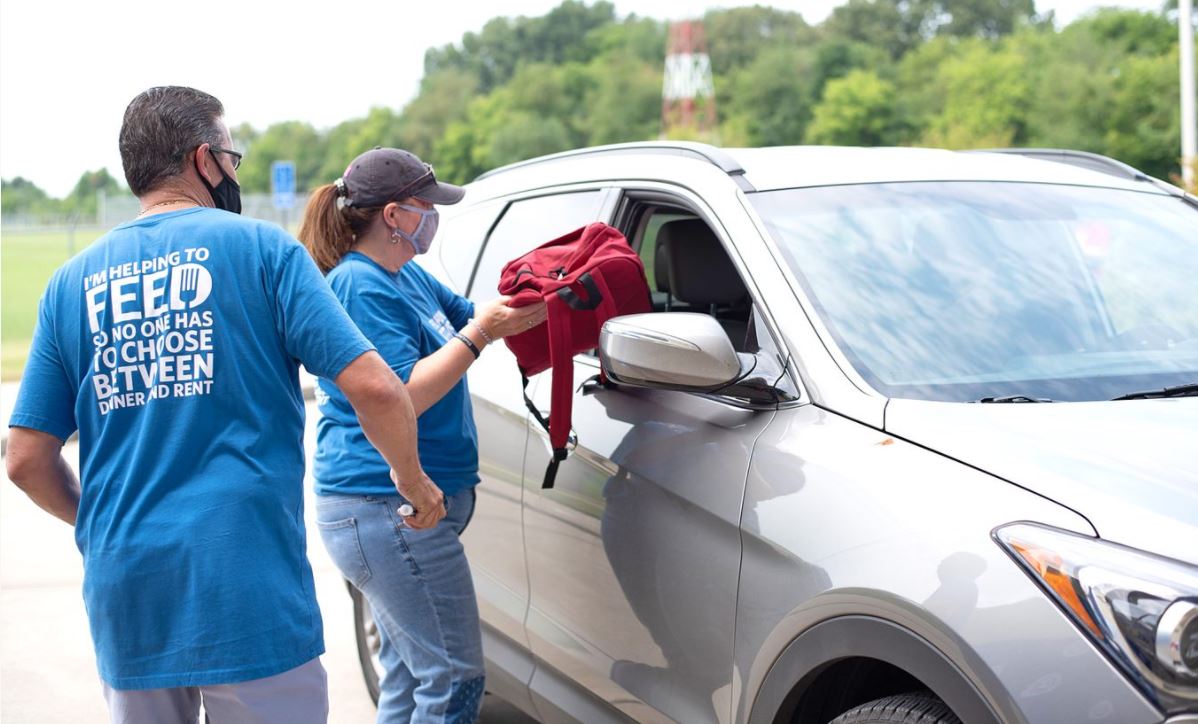
Protecting associate well-being
Associates across the brands and businesses worked tirelessly, through shifting pandemic conditions and rapid public policy changes, to ensure that people in local communities had the food and products they needed. Safety staff, for example, continued to take on additional work from the pandemic alongside their regular responsibilities, to ensure the health and safety of customers and associates. These efforts to provide safe places to shop and work were well appreciated by our brands’ communities. For example, Giant Food was named one of the top places to work in the Washington D.C. area by the Washington Post.
Our brands also continued to perform regular health assessments and temperature taking, and virus tracking if any associates became ill. They helped make it easier for associates to get tested and vaccinated. For example, Albert Heijn and bol.com collaborated with local health authorities to put mobile vaccination stations at distribution centers. Super Indo engaged in a retail sector initiative that enabled them to achieve a 98% vaccination level among associates. The U.S. brand pharmacies played an important role in ensuring not only customers, but also associates could get vaccinated.
This second pandemic year continued to be a challenging time for people in all our markets, faced with constant change and the need to find ways to live and work safely – while experiencing fear, grief and loss. We have continued to focus on opening up the topic of associate mental health and providing help where needed.
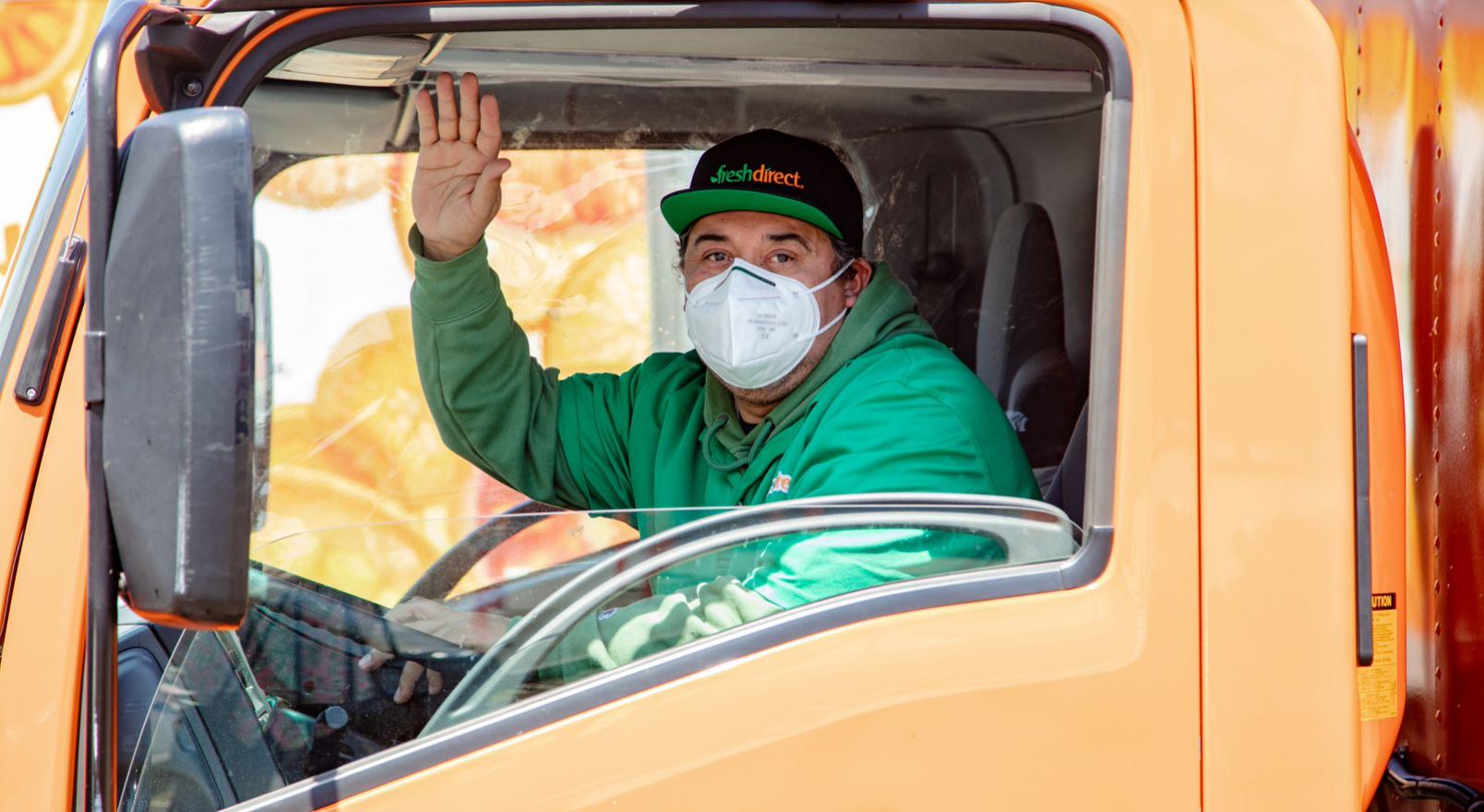
Hybrid ways of working
All of the brands maintained flexible work guidelines, or a hybrid way of working, for office-based associates, in line with their local cultures and government guidelines. Some brands kept offices open but did not require associates to go in. Other brands asked associates to come to the office for a few days during the week. For example, associates in the Dutch support office could decide how often and which days to go to the office, as long as they did between one and three days per week. Our brands also used this time to ask for input on how associates would like to work in the future. The majority of support office associates indicated they would like to continue working from home for at least part of the work week. Our local brands took this input into account and some followed trends in the market towards redesigning offices to fit the new hybrid ways of working – for example, by replacing assigned desks with flexible work spaces combined with desk reservation tools, and designing creative collaboration spaces equipped with technology. When the first associates made their return back into the office, the brands put in place safe distancing measures, signing, routing and desk reservation to keep people healthy. FreshDirect permanently updated its main office entrance to emphasize safety and hygiene. Anyone entering the office has their temperature measured electronically and is asked to wash their hands in adjacent sinks before heading further into the building.

In a world where distance and hybrid working are now widespread, our brands also worked to find new ways for associates to connect with each other, learn more about each other and feel part of the team. For example, Peapod Digital Labs published an associate spotlight video series to engage potential applicants and inform fellow associates about the various job roles it offers.
In 2021, 76% (2020: 76%) of associates, in aggregate, said they found their brand or support office to be a healthy workplace. We believe this stable result was a good achievement in a second pandemic year when associates would naturally have more concerns about safety and wellness.
Building on a strong omnichannel offering
While brick-and-mortar stores still account for the vast majority of our sales and profits, we continued to accelerate our expansion into home delivery and pickup to meet COVID-19-driven demand. We believe that online purchasing will continue to grow; see Evolving market trends for more information. To serve this need, the U.S. brands opened 270 click-and-collect points, including converted pick-up points, in 2021. See Drive omnichannel growth for more examples of how we built our offering in 2021.
Supporting communities
In 2021, we continued to support our communities and live up to the trust our brands have built over the years, and particularly during the pandemic crisis. During 2021, the Ahold Delhaize brands collectively contributed nearly €200 million in charitable donations to local food banks, national and private health systems, the Red Cross, medical facilities to further research on COVID-19, and to feed first responders in critically hard-hit areas.
Our pharmacies in the U.S. were major distribution points for the COVID-19 vaccine in their markets. They administered approximately 1.8 million COVID-19 vaccines in a broad effort across Giant Food, Stop & Shop, The GIANT Company, Hannaford and Food Lion.
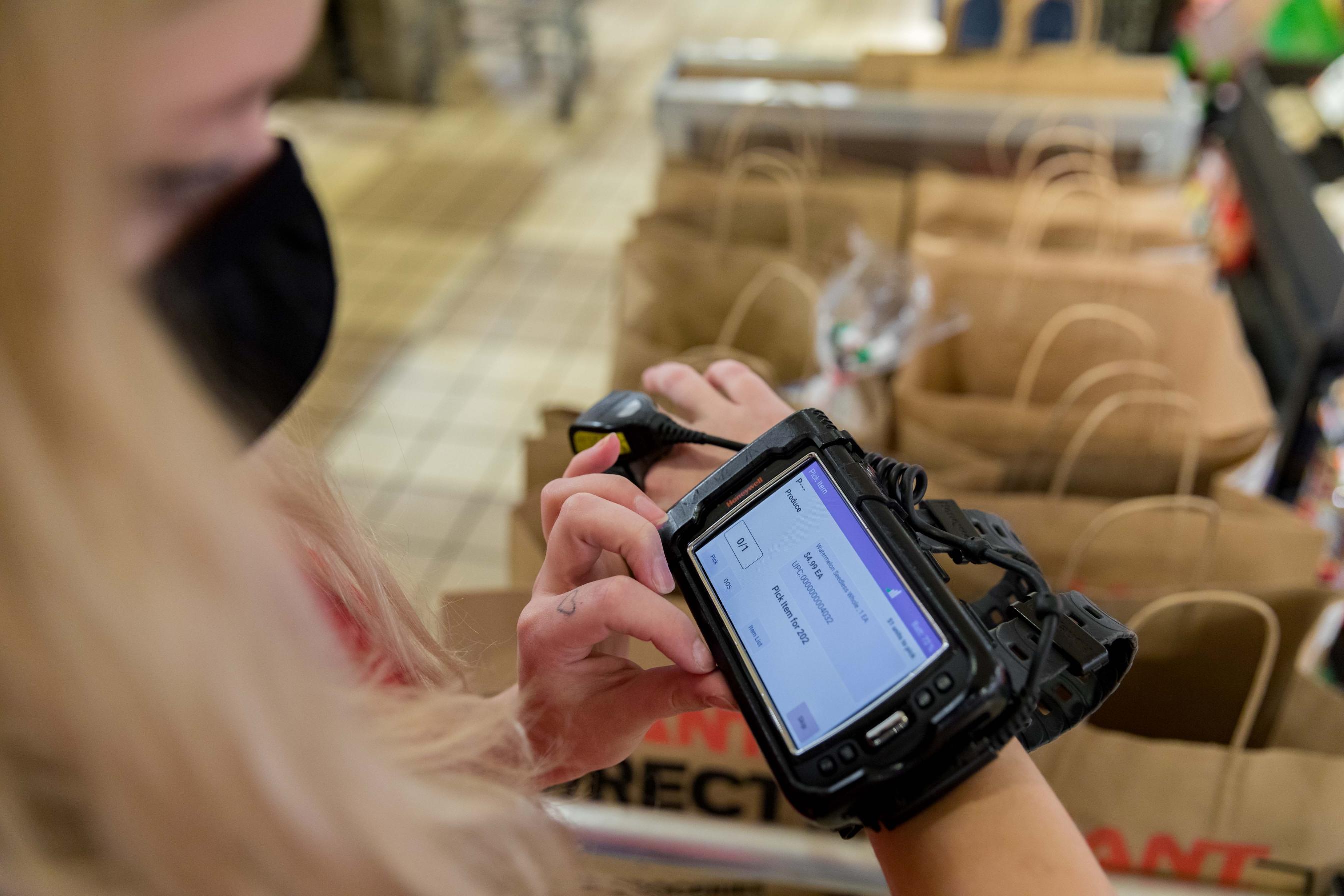
Safeguarding supply chains
COVID-19 continued to put incredible stress on the supply chain, requiring us to collaborate much closer across the chain than ever to meet customers’ needs; this was greatly facilitated by the close partnerships our businesses have developed with suppliers over the years.
While our European brands managed to ensure high levels of product availability to customers, our U.S. brands continued to have challenges in some product categories. This was mainly because some manufacturers were not able to meet customer demand due to workforce absenteeism. In addition, shortages of some raw materials used to produce products – both for sale and not-for-resale – resulted from increased demand due to the economic recovery in addition to the continued impact of COVID-19 on national and international supply chains.
Maintaining financial stability
Our results and free cash flow continued to be favorably impacted by the COVID-19 pandemic. See Performance review for more information about our financial performance in the context of the pandemic.
While there was government assistance available to companies during the year in several countries where our brands operate, we did not apply for any government assistance.

Adapting to changing circumstances
Across our brands’ markets, as governmental measures eased and tightened in line with infection rates, our brands continued to comply with local measures to keep associates and communities safe. The continued shifts created challenges for teams across the brands. For example, the U.S. brands prepared to comply with potential government vaccine and testing mandates around employers with 100 or more employees, the OSHA Emergency Temporary Standard to minimize the risk of COVID-19 transmission in the workplace. This was a time-consuming process, filled with uncertainty and challenges, including the risk of losing associates to smaller companies that would not have to comply with the mandate. FreshDirect has been an industry front-runner in this area and was one of the first companies to have vaccination and testing mandates in place.
The brands continued to face higher rates of absenteeism during the year but were able to hire new associates and avoid business interruptions. For the second year, our associates did an incredible job adapting to change and uncertainty so that we could be there for customers and communities.
COVID-19 is proving to have a long-term impact on consumer habits across all areas of life. Our strategy has prepared us well to adapt to this and we are accelerating in certain key areas so we can keep helping our customers eat well, save time and live better. For more information on long-term market trends and our strategic response, see Evolving market trends and Our strategy.